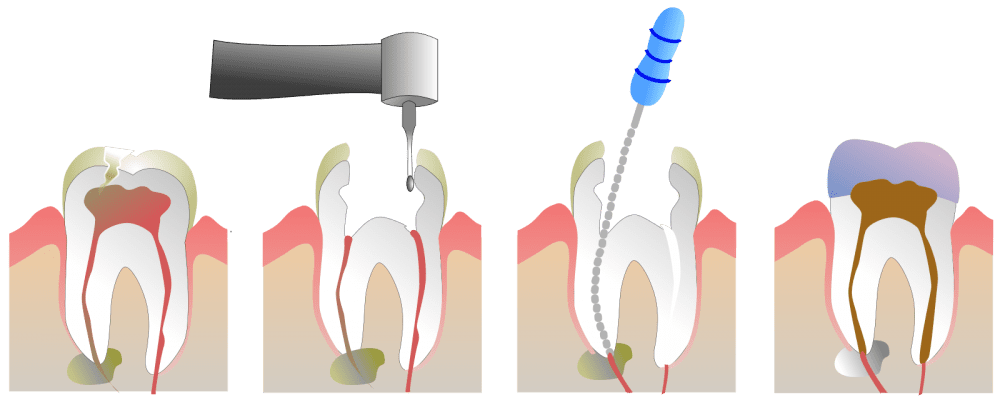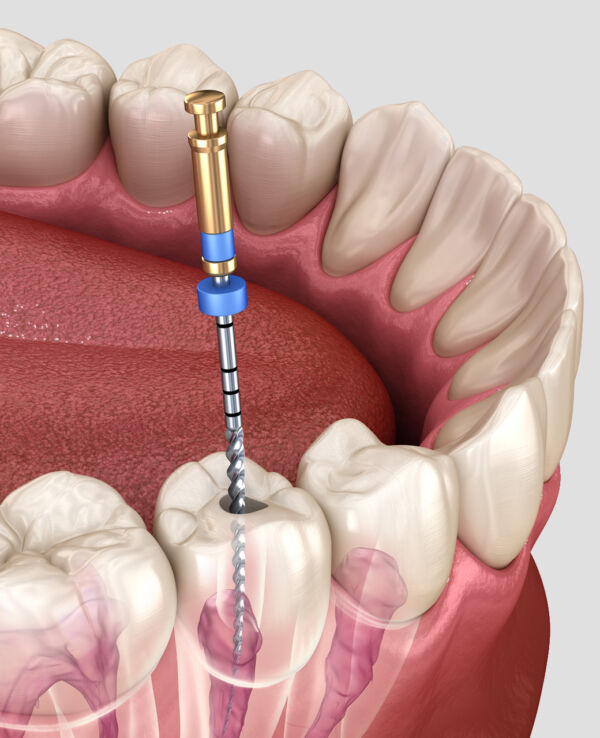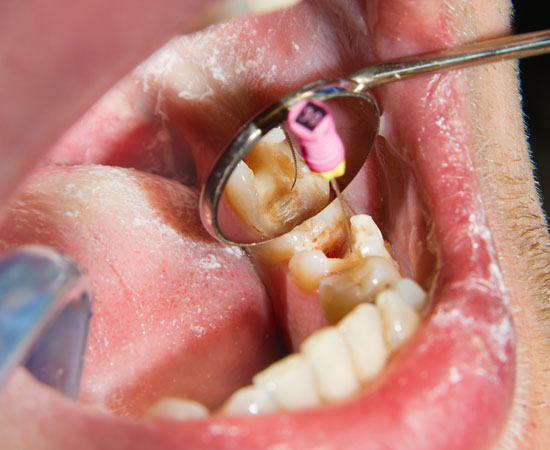Endodontics (Root canal Treatments) & Cost in Turkey
About Endodontics
Endodontics, a specialized branch of dentistry, focuses on diagnosing, preventing, and treating diseases affecting the tooth’s interior, known as the tooth pulp. An endodontist is a dental specialist who has undergone additional training beyond dental school to master the intricacies of endodontic procedures. They have the expertise to treat complex tooth problems that affect the tooth pulp, the soft tissue within the tooth that contains the nerves and blood vessels.
What Procedures Does an Endodontist Perform?
- Root canal therapy: This is the most common endodontic procedure. It involves removing the infected or inflamed tooth pulp, cleaning and shaping the root canals, and filling them with a biocompatible material to prevent further infection.
- Retreatment of root canals: there are some cases where the root canal that was previously treated can fail due to reinfection or other complications. Endodontists can re-treat failed root canals to salvage the tooth.
- Surgical endodontics: When conventional root canal therapy is not feasible due to complex anatomy or severe infection, endodontists may perform surgical procedures, such as apicoectomy, to access and treat the root canal system.
- Endodontic microsurgery: This involves using a microscope to visualize the intricate anatomy of the tooth pulp and root canals, allowing for more precise and delicate procedures.
Specialist Endodontist and Endodontic Services
Endodontists are equipped with specialized tools, equipment, and technology to perform complex endodontic procedures, combining their extensive experience, they can treat a wide range of dental problems. Endodontic services can help save teeth that might otherwise be lost to infection or other damage. They can also relieve pain and prevent further damage to the tooth and surrounding tissues.
Endodontist vs. Dentist
While both endodontists and dentists are dental professionals who cover different areas of expertise. General dentists provide a wide range of dental services, such as routine cleanings, fillings, and extractions. On the other hand, endodontists specialize in treating problems of the dental pulp. So, if you have any dental problems, your general dentist will be the first one you see. After they evaluate your condition, they’ll determine if you need to an endodontist.
How Much Does Endodontic Treatment Cost in Turkey?
The cost of endodontic treatment in Turkey can vary depending on the complexity of the procedure and the experience of the endodontist. However, in general, endodontic treatment is significantly less expensive in Turkey than in many other countries. The average cost ranges between $100 to $300 per tooth.
How Can Endodontics Help Me?
Endodontics can help you by:
- Relieving tooth pain
- Saving teeth that might otherwise be lost
- Preventing further damage to the tooth and surrounding tissues
- Improving your oral health and overall well-being
How Does Endodontics Work?
The endodontic procedure follows these steps:
- Your endodontist will numb the tooth using local anesthesia to minimize pain and discomfort.
- They will then create a small opening in the crown of the tooth to access the pulp chamber.
- They will remove the infected or inflamed pulp carefully using specialized equipment
- After that, the root canals will be cleaned and shaped to remove any remaining debris and prepare them for the filling.
- The root canals are filled with a biocompatible material to prevent further infection.
- Finally, a crown or other restoration will be placed to protect the tooth and restore its function and aesthetics.
FAQs: Endodontics
When should I see an endodontist?
You should see an endodontist if you are experiencing any of the following symptoms:
- Severe tooth pain
- Sensitivity to hot or cold temperatures
- Persistent toothache
- Swelling or discoloration of the gums around a tooth
- A visible abscess or pimple on the gums
What is a root canal, and why might I need one?
A root canal is a procedure that removes the infected or inflamed tooth pulp to prevent further infection and save the tooth from extraction. You may need a root canal if you have any of the symptoms mentioned above.
What is microscopic dentistry, and how does it benefit endodontic procedures?
Microscopic dentistry is a technique that uses magnification to help dentists see the inside of the tooth in greater detail. This allows for more precise and accurate treatment, especially during endodontic procedures.
Microscopic dentistry offers many benefits for endodontic procedures, such as:
- Improved visualization of the root canals
- More precise cleaning and shaping of the root canals
- Reduced risk of procedural errors
- Improved success rates of endodontic treatment
Do I need endodontic treatment?
Only a dentist can determine if you need endodontic treatment. They need to study your case, evaluate your symptoms, medical history, and the results of a dental examination to make a diagnosis. It’s important to note that early diagnosis and treatment can help prevent the need for more complex and expensive procedures down the road, so listen to your body carefully, and check out with your dentist whenever you feel any of the symptoms that we’ve discussed above.
What Services Does an Endodontist Provide?
Endodontics is a specialty of dentistry that focuses on identification and management of the dental pulp and tissues surrounding the roots of teeth. Root canals are the most common endodontic procedure. The procedure involves the removal of infected or damaged pulp and attempting to save the damaged tooth.
Aesthetic Airways provides a range of endodontic services including dental trauma, endodontic microsurgeries, root canal treatments, and standard root canals.
Endodontics Gallery
.



